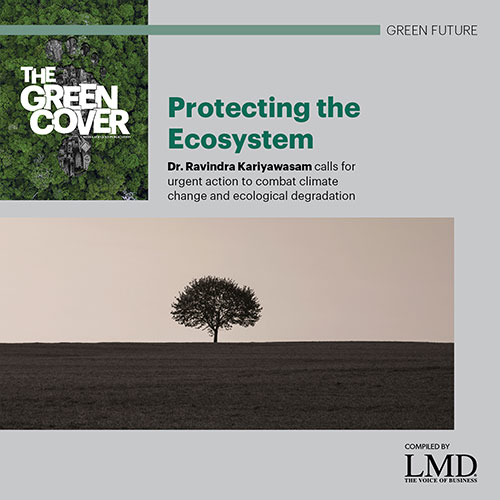WILDLIFE CONSERVATION
Conservancy Policies
Dr. Arittha Wikramanayake calls for changes to the legal framework to support conservation efforts

Precedent Partner
Heritage Partners
Q: As conservation branches into many categories, how complex is protecting, preserving and restoring nature under conservation law?
A: Conservation – especially in today’s world – is a complex subject. It isn’t a simple act of protecting an elephant or a leopard as many still think. Conservation touches every aspect of our lives and actions, each intrinsically interdependent on the other.
Therefore, ‘conservation law’ is a misnomer as it implies that laws dedicated to such issues would be able to manage the challenge of conservation. That’s a mistake.
While there is undoubtedly a need for specialised conservation laws in certain areas, virtually every law dealing with social or economic activity needs to factor in the environmental impact of what it facilitates and include provisions to address conservation concerns. Policy makers and the public must understand this fundamental premise.

Q: How crucial is law enforcement in conservation?
A: Environmental conservation cannot be achieved without a supporting legal framework in place – one that provides effective enforcement procedures. Besides the fact that effective enforcement is necessary to deter wilful law violations, all of us – no matter how committed we are to conservation – often think we’re entitled to exceptionalism when convenient.
Enforcement procedures and the knowledge that they exist not only facilitate law enforcement but also act as deterrents.
Q: What challenges do conservationists face in terms of the law?
A: Formulating conservation policy and law is a complex challenge. One needs to be mindful that such policies cannot be forcefully implemented unless there is a general buy in from society.
Conservationists often find themselves mired in disagreement on their agendas – ranging from extreme activists, eco-warriors and crusaders to conservation pragmatists. The bottom line is that no conservation policy will be accepted or succeed unless it’s pragmatic and realistic, evidence-based and accommodates other policies that cater to equally important needs of the population.
“Environmental conservation cannot be achieved without a supporting legal framework in place – one that provides effective enforcement procedures
Q: How important is the government’s role in implementing and improving existing laws?
A: The government plays a crucial role in reviewing the legal framework that impacts conservation and making much needed changes. Our current laws and policies are archaic as they cater to outdated policies; ad hoc, resulting in regulatory gaps and overlaps; and ineffective as they fail to provide effective sanctions.
It is therefore imperative that new laws are formulated to incorporate modern thinking on conservation, and provide for effective implementation, oversight and enforcement.






